‘People need to learn that the days of Chinese rapid growth—debt-fueled as it was—are basically over,’ says one analyst
By August 15, 2023
Chinese laborers work at a construction site at sunset in Chongqing, China, on Mar. 6, 2005. (China Photos/Getty Images)
China has slid into deflation after months of disappointing export, manufacturing, home sales, and youth employment results. This has led to louder calls for the Chinese Communist Party (CCP) to roll out stimulus measures to kickstart the sputtering economy.
The world’s second-largest economy has been struggling for months, failing to achieve the post-pandemic boom that many had anticipated. The latest July data release showed exports posting its sharpest year-on-year drop since before the pandemic, and imports at five straight months of decline. Factory-gate prices fell for the 10th consecutive month, while new home sales saw its most significant monthly drop since July 2022.
If Beijing’s been waiting for the best timing to boost the Chinese economy or trying to avoid moral hazard from bailing out its heavily indebted property sector and local governments, it should wait no more, some analysts have argued.
But some say otherwise: the CCP isn’t waiting—it simply doesn’t have the money or fiscal space to do it.
That’s the view of William Lee, chief economist at the Milken Institute, an economic think tank based in California, and Christopher Balding, an expert on the Chinese economy at the Henry Jackson Society, a UK-based think tank.
In Mr. Balding’s view, China’s economy will be “very, very sluggish” and “turn into a long grinding mess as long as Beijing can draw it out.”
“People need to learn that the days of Chinese rapid growth—debt-fueled as it was—are basically over,” he told The Epoch Times. “And now they’re just trying to keep it from collapsing.”
Edward Yardeni, president of Yardeni Research, a global investment consultancy in New York, is more specific in his predictions. He said China’s economy would go into an “economic stagnation” that “could very well be for the next 10 to 20 years.”
“I think maybe whatever [the CCP] said that they think the economy can grow at, I would cut that in half,” he told The Epoch Times. “So we are looking at more like 0 to 2 percent growth for the next few years.”
CCP Can’t Pay for a Big Stimulus
Experts say that the CCP is simply unable to inject a significant boost into China’s economy.
Mr. Lee of the Milken Institute said that local governments had been the traditional channels for implementing stimulus in China. They are now heavily indebted and want Beijing’s help, but Beijing also has excess debt—26 trillion yuan (about $3.6 billion) at the end of 2022, according to the CCP’s official count. Therefore, Beijing cannot finance new spending without raising taxes, he said.
Rhodium Group estimated local government finance vehicles, which cities use to raise funds for infrastructure and real estate projects, to be 59 trillion yuan (over $8 trillion) last year, about half of China’s gross domestic product (GDP). According to the same report, additional local debts through schools, hospitals, and other mediums would bring the total to about 100 percent of the GDP.
“Restructuring local debt or ‘solving’ the local government debt problem would change China’s entire economy,” Rhodium analysts warned about the decade-old problem. “Any meaningful resolution of the local debt problem would likely trigger a significant structural slowdown in investment, and a sharp slowdown in economic growth for the next decade.”
Local governments and the property sector are struggling together.
On average, land sales make up over 30 percent of the total revenue for local governments. That ratio is as high as 50 in some coastal provinces with higher land prices. When developers are not buying land due to heavy debt and dropping property prices, municipalities face difficulties repaying their debts.
Mr. Balding said that the CCP doesn’t have the money to bail out developers and hopes that consumers will solve the problem by buying more real estate. But consumers have become more educated about the risks and won’t foot the bill.
The situation has evolved into one in which Beijing, local governments, and consumers are kicking the deflation ball to one another, he said, noting that consumers are not spending, and this low demand won’t lift China’s economy.
He used the example of Evergrande, the world’s most indebted property developer, to illustrate the size of the problem and why the CCP doesn’t have the money to bail out the property sector.
Evergrande had 1.7 trillion yuan ($236 billion) in short-term debt and 13 billion yuan ($1.8 billion) cash on hand, according to its 2022 annual report (pdf).
Mr. Balding equated that situation to an individual having $100,000 in the bank and $2 million overdue credit card debt. Hence, repaying the debt looks impossible.
To further illustrate the point, he pointed to the Industrial and Commercial Bank of China (ICBC), the world’s largest bank by total assets, which reported (pdf) a capital base of 4.3 trillion yuan ($597 billion) at the end of 2022.
If Evergrande’s debt were to be written off, that would swallow about 40 percent of ICBC’s capital.
The above example, he noted, was for explaining the size of the problem with the property sector without knowing ICBC’s total exposure to Evergrande. ICBC is reported to be one of Evergrande’s major creditors.
Will the international community bail out the CCP? Mr. Balding thinks not.
“The very simple reason is that nobody in the world has the amount of capital that Beijing would need,” he said.
Based on the total assets of China’s banking system at about $50 trillion, he said even a 20 percent recapitalization would require $10 trillion, equivalent to saving 50 Silicon Valley Banks, the mid-sized bank that collapsed in March due to poor risk management.
“The IMF doesn’t have that type of money,” he said, adding that neither do international investors.
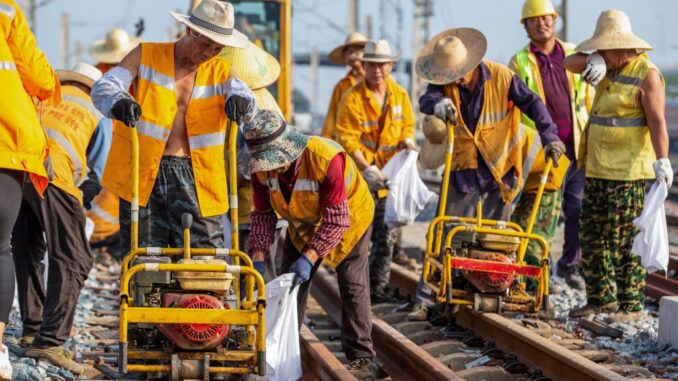
CCP and the Private Sector
In recent months, Chinese authorities have turned to frequent new policy releases, stopping short of deploying concrete stimulus measures.
In July alone, Chinese authorities announced multiple policies to support private enterprises, encourage electronics and car consumption, extend property loan expiration, and improve the education system to address the high youth unemployment rate after the central bank lowered key interest rates a month earlier. On Aug. 15, the regime announced it would stop releasing monthly data on youth unemployment.
“The government is not rolling out a strong set of fiscal stimulus measures because, number one, the fiscal space is limited because of the high indebtedness of the local and the federal government. So they cannot finance the fiscal spending by issuing debt,” Mr. Lee of the Milken Institute told The Epoch Times.
“Number two, the main target for fiscal policy is to strengthen the private sector. And they don’t have the credibility to convince the private sector that their policies will not reverse again because of what they just did,” he added, referring to the Chinese regime’s aggressive clampdown on private businesses over the past three years.
Mr. Balding called the new policies “do-nothing measures.”
On July 28, stemming from a policy promoting public sector growth, the cabinet-like State Council established an online platform to collect complaints about private businesses facing obstacles. This is Mr. Balding’s favorite “do-nothing” example, as he doesn’t believe any private companies in China will file any reports.
Gary Ng, Asia Pacific senior economist at Natixis, a French corporate and investment bank, said that Chinese authorities have shown a change in policy direction, but its implementation is meeting hurdles.
For instance, most of the bank loans are still going to the “safe player” or state-owned companies (SOEs), he said. “For the private firms, I doubt how much money they can get because if we look at what happened in Country Garden recently, it’s quite clear that the stress is still very high.”
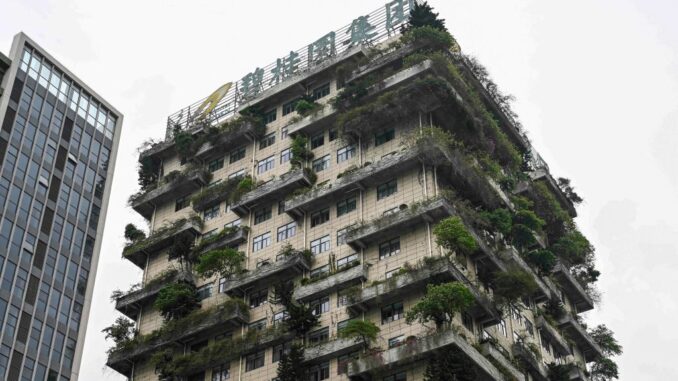
On Aug. 11, Country Garden, China’s biggest developer by 2022 sales, warned that it could lose as much as $7.6 billion for the first half of this year. It also confirmed earlier that it had missed $22.5 million in international bond payments. And this was after the company got a $7 billion credit line from a state-backed bank in November. On Aug. 14, the company suspended 11 of its domestic bond listings.
For land auctions, Mr. Ng said that SOEs now win 80 percent compared to 40 percent to 50 percent in the past. He added that local governments are holding down payments that are supposed to be passed through to developers when construction milestones are met.
China’s private sector obtained less than 15 percent of total business loans during the first quarter. The latest July data showed new business loans at the lowest in almost three years.
“I think there is still a very clear pressure in terms of this preference towards the safer player. And the companies which need the liquidity the most still cannot get it,” Mr. Ng told The Epoch Times.
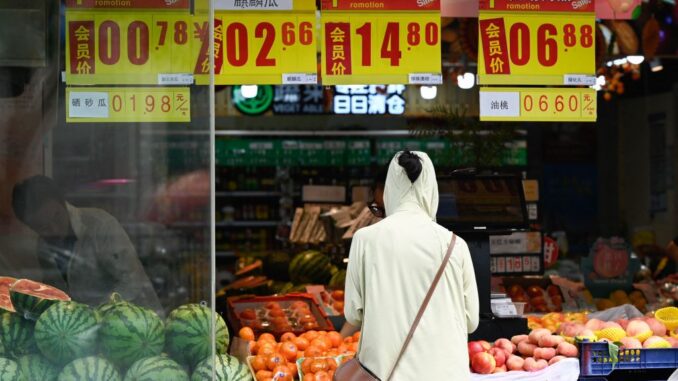
‘Telling a Communist Government Not to Be Communist’
To Mr. Balding, the communist regime and the private sector are fundamentally in conflict.
“You’re telling a communist government not to be communist anymore when you say Beijing needs to encourage the private sector,” he said. “You’re telling the communist government, ‘If you’re not communist anymore, things will get better.’”
“I’m just going to be blunt,” he said, adding, “At the end of the day, all of Chinese economics is still about the state” because the Party controls the capital.
The CCP has built its legitimacy by telling the Chinese people that it was a good economic and financial manager of the country, Mr. Balding said. “Beijing cannot allow an event, a hard landing, a crisis, something like that; they simply cannot. Because if they do, that’s the end of the CCP.”
“And they will do everything they can to prevent that situation,” he added. But with limited resources and means, the CCP will likely drag the country’s decline for as long as possible.
Mr. Yardeni thinks the CCP is responsible for the country’s current economic woes as some of its past growth “was done with the speculative excesses and poor government policies, especially the one-child policy.”
The CCP’s foreign policy has also had a direct impact on China’s export markets.
“The foreign policy of China has been very aggressive and hostile towards the West. And the West has responded by recognizing that Western businesses need to be much less reliant on Chinese suppliers,” he added.
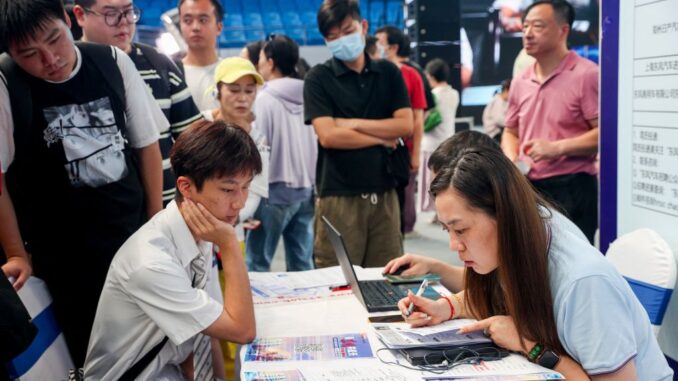
Confidence Is the Key
The ten-month decline in factory-gate prices suggests that the deflationary environment is “getting more and more entrenched,” according to Mr. Lee.
He said the chain effect causes people to delay spending: when businesses are not doing well, they may lay off people. Given China’s over 20 percent youth unemployment rate, consumers are worried about their children’s and their own jobs. At the same time, the price of property, where many Chinese invested their savings, is falling.
“When wealth is dropping, and income is not secure, people don’t spend,” Mr. Lee added.
Mr. Ng agreed. The current economic situation didn’t happen overnight. But, in the past several years, households and companies still believed that they could earn more money in the future, according to him.
“But right now, everyone has become more cautious simply because they are not too certain about the future,” Mr. Ng said. “So I think, in a word, confidence is the most important thing to watch in the future.”
He added that regulatory uncertainty has also played an essential role in low confidence in the market. Mr. Ng said that the Chinese regime is no longer putting growth as its first priority. While there isn’t much coherence in Beijing’s current policies, if one has to summarize a new priority theme from the regime’s latest guidelines, it would be stability.
What signs do we need to see to know that the confidence is back? He mentioned two things.
“First, we will need to see a very clear rebound in consumption and corporate investment.
“And second, we will need to see a rebound in the asset prices in China as well, which generally is more related to equity, and real estate as well, because that will actually show that people are more confident in not putting the money in the bank savings and they’re willing to consume or invest.”
Mr. Ng doesn’t expect this to happen until at least the end of this year or early next year.
He pointed out that 2024 would be more challenging because it no longer has the “base factor,” referring to the low economic figures from 2022, a pandemic year, for 2023 to show growth.
“It’s really about next year because if we do not see a very meaningful pickup in consumer and corporate sentiment, then I think the growth prospect will be much more challenging next year,” he said.
In Mr. Yardeni’s view, China’s situation is similar to what happened in Japan in the late 1980s, pointing to the country’s property bubble and aging population.
“They’re going to be faced with a period of economic stagnation because of the demography, because of their speculative bubble bursting,” he said.

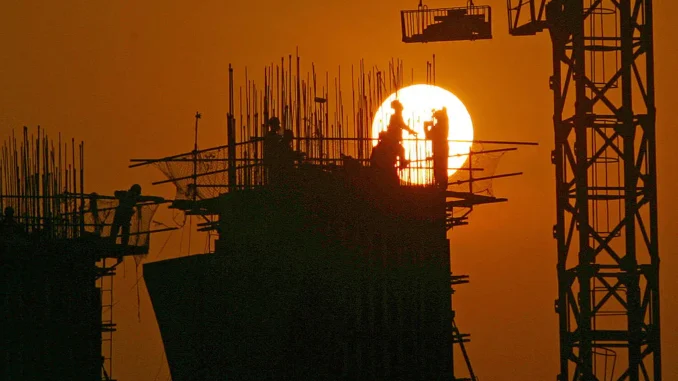


Michael is right. China is suffering from massive problems, many of them caused by the irrational policies of the CCP. The CCP’s politburo and central committee even more or less admitted this when Xi and his two top deputies convened what they admitted was an “emergency” meeting to deal with the countrry’s urgent problems, such as the inability of local governments to pay their huge debts, the huge number of defaults and bankruptcies in the private sector, and failure of China’s wheat and rice crops this year, which even the government admits creates a serious risk of famine. The vast destruction towns and cities, including Beijing itself, and destruction of numerous industrial plants and power plants in Beijing itself and the Hebei province in which Beijing is located, the huge number of displaced persons in Hebei for which no shelters, even temporary ones ,can be found the complete destruction of hundreds of towns and villages in Hebei province, will take years and perhaps decades to rebuild. Both China’s expoorts and its imports have fallen dramatically this year. There has even been a sharp decline in people of child-bearing age, and a birth rate well below replacement level., Most economic “experts” on China’s economy expect years and perhaps decades of hard times ahead.
There are two Chinas. One is the physical country, with a unique people, a unique history, etc. The other is one man, Xi Jinping, who has the audacity to speak, by his own authority, for the Chinese people.
When one says,
,
which China is he talking about? Xi Jinping is headed for decades of continuing, and increasing, luxury and power, for as long as the Chinese people are willing to prop him up.
There are two contrasting attitudes toward China, attitudes held both at home and abroad. One attitude believes that China is uniquely benefited by Xi’s strtong-arm rule, which enables the country to “react quickly” to threats and changes. The other attitude is that the more authoritarian China becomes, the less innovative it becomes; the less people are encouraged to invest in long-term projects; the more kowtowing becomes the norm and fresh ideas are sequestered into the darkness.
I personally hold to the second attitude, which is backed up by numerous examples from history.
Is China headed for decline? Then Xi will increase. Is China headed for increase? Then Xi will decline.
Another reason The Club for No Growth are pushing the ‘green’ Scamdemic ‘renewable’.. to prop up the Communist Chinese